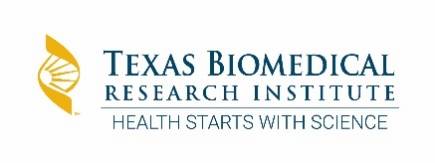Texas Biomed
Texas Biomed

Dekking Consultancy is the EU BD representative for Texas Biomedical Research Institute.
Texas Biomed is one of the world’s leading independent biomedical research institutions specialized in preclinical research, and is dedicated to the advancement of human health through basic research into the nature, causes, prevention and eradication of disease.
For available preclinical models click here
Topics of interest are:
- Aging and Development
- Diabetes, Heart Disease & Metabolic Disorders
- Drug-resistant Superbugs
- Emerging Infectious Diseases (Zika)
- Food Borne Illnesses
- Hepatitis/Liver Disease
- Hemorrhagic fever viruses (Ebola, Lassa, Dengue)
- Hospital Acquired Infections (MRSA/Sepsis)
- Leading Infectious Diseases (HIV/Malaria/TB)
- Neurological Disorders
The work for each topic of interest is organized in the following program area’s:
- Host-Pathogen Interactions (HPI)
- Discovering relationships between pathogen, vector, and host variation at the cellular level. The study and manipulation of disease vectors (such as the mosquito) is an area of potential expansion.
- Understanding route of entry, host microenvironment, and immune processes at mucosal surfaces.
- Developing new models that replicate key features of human disease progression, including small and large animal models, and organoids.
- Disease Intervention & Prevention (DIP)
- Understanding the mechanisms of multi-drug resistance and development of interventions and prevention protocols for hospital acquire infection, including the study of biofilms.
- Advancing novel approaches for point of care diagnostics; understanding mechanisms of virulence and new avenues for rapid and accurate diagnosis and treatment
- Population Health (PH)
- Host genetics and pathogen-driven host epigenetic reprograming including cross-talk between microbes and the host-epigenetic machinery.
- The impact of population immune and metabolic phenotypes on susceptibility to infection.
- The role of the environment on specific human and animal communities impacting host resistance or susceptibility to infectious and chronic inflammatory diseases.
Technical Resources and Capabilities present at Texas Biomed are:
- High Containment
- The department’s state-of-the-art facilities include the nation’s only privately owned biosafety level four (BSL-4) maximum containment laboratory.
- Southwest National Primate Research Center (SNPRC)
- The SNPRC is home to about 2,500 nonhuman primates, including chimpanzees and a variety of monkey species. The Laboratory Core Services provided by the SNPRC include immunology, imaging, pathology and research support. The primary focus areas that drive research at SNPRC are Infectious Disease and Regenerative Medicine & Aging.
- Scientific cores
- Biology Core (BC)
Providing state-of-the-art instrumentation and relevant expertise in the areas of flow cytometry, soluble molecule detection and quantification, and microscopy imaging. - Molecular core (MSC)
Provides centralized access to high throughput genomics and molecular technology and bioinformatics support for the advancement of research conducted by Texas Biomed, the Southwest National Primate Research Center (SNPRC), and external investigators. - Microscopy Core (MC)
Facilitates and enhances research imaging in nonhuman primate models from whole animal to subcellular level. The Microscopy Core is operated by a full-time PhD level Manager and offers access to high-end instrumentation for light microscopy. - Vivarium Core (VC)
offers research support for rodents on a variety of infectious diseases including tuberculosis, schistosomiasis, influenza and coronavirus amongst others. The vivarium also supports small animal models of aging, Parkinson’s, and Alzheimer’s.
- Biology Core (BC)